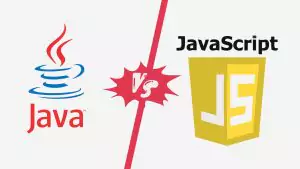Expressions are fundamental components of Java programming, and they play a vital role in defining and manipulating data. Whether you are a beginner or an experienced programmer, understanding expressions in Java is crucial to writing efficient and effective code. In this guide, we will explore what expressions are, how they are used, and the different types of expressions in Java.
Understanding Expressions
In Java, an expression is a combination of literals, variables, operators, and method calls that produce a single value. These expressions are the building blocks of Java programs and are used to perform various operations, assign values, compare values, and more. The Java compiler evaluates expressions at runtime to generate a final value.
Expressions are different from statements, as statements are complete lines of code that can perform actions but do not necessarily produce a value. On the other hand, expressions always yield a value. For example:
// Expression
int sum = 10 + 5;
// Statement
int a = 10; // Here, 'a' is assigned the value 10, and this line is a statement, not an expression.The Components of Java Expressions
1. Literals
Literals are fixed values that are directly specified in the code. They can be of various types, such as integers, decimals, characters, booleans, or strings. For example:
int age = 25; // Integer literal
double pi = 3.14; // Decimal literal
char grade = 'A'; // Character literal
boolean isActive = true; // Boolean literal
String name = "John"; // String literal2. Variables
Variables are names given to memory locations that can hold values of specific data types. They are essential for storing and manipulating data in Java. Using variables within expressions allows us to perform operations and make decisions based on the variable values. For example:
int num1 = 10;
int num2 = 20;
int sum = num1 + num2; // Expression that uses variables3. Operators
Operators are symbols that instruct the compiler to perform specific mathematical, logical, or bitwise operations on the operands. Java supports various types of operators, such as arithmetic, assignment, comparison, logical, and bitwise operators. Some examples include:
- Arithmetic operators: + (addition), – (subtraction), * (multiplication), / (division), % (modulo)
- Assignment operators: = (assignment), += (add and assign), -= (subtract and assign), *= (multiply and assign), etc.
- Comparison operators: == (equal to), != (not equal to), > (greater than), < (less than), >= (greater than or equal to), <= (less than or equal to)
- Logical operators: && (logical AND), || (logical OR), ! (logical NOT)
4. Method Calls
Methods are blocks of code that perform specific tasks and can be called to execute the code inside them. In expressions, method calls are used to invoke a method and get the return value, which can then be used as part of the expression. For example:
int length = "Hello, Java!".length(); // Method call to get the length of the stringUsing Expressions in Java
Expressions are utilized in various scenarios in Java programming. Some common use cases include:
1. Arithmetic Operations
Arithmetic expressions are used to perform mathematical calculations. These expressions can involve literals, variables, and operators to carry out tasks like addition, subtraction, multiplication, and division. For example:
int num1 = 10;
int num2 = 20;
int sum = num1 + num2; // Addition expression
int product = num1 * num2; // Multiplication expression2. Conditional Statements
Expressions are crucial in conditional statements, where certain actions are performed based on the evaluation of a condition. The conditional (ternary) operator ? : is commonly used in expressions to evaluate a condition and return different values based on the result. For example:
int num = 10;
String result = (num % 2 == 0) ? "Even" : "Odd"; // Conditional expression3. Loop Iterations
Expressions are often used in loop statements, such as for and while loops, to control the execution of the loop based on a condition. The condition expression is evaluated before each iteration, and if it evaluates to true, the loop continues; otherwise, it exits. For example:
for (int i = 0; i < 5; i++) { // Loop expression
System.out.println(i);
}Conclusion
In Java programming, expressions are essential for manipulating and evaluating values. They consist of literals, variables, operators, and method calls and produce a single value. Understanding expressions is crucial for writing effective and efficient code. By mastering expressions, you can perform calculations, make decisions, and control program flow. So, embrace expressions in your Java programming journey and unlock the power of data manipulation and computation!
FAQ
Are there any restrictions on using expressions in Java?
While expressions provide flexibility and power in Java programming, there are some restrictions to keep in mind:
- Syntax: Expressions must follow the correct syntax and adhere to Java’s language rules.
- Type Compatibility: The operands and operators used in expressions must be compatible in terms of data types. Mixing incompatible types can lead to compilation errors.
- Operator Limitations: Certain operators have specific rules and limitations. For example, the division operator (
/) cannot be used with a divisor of zero, as it will result in a runtime exception.
How do expressions contribute to the overall functionality of Java programs?
Expressions play a vital role in the functionality of Java programs in multiple ways. Expressions allow for the manipulation of data by performing calculations, combining values, and applying various operations. Moreover, expressions are used in conditional statements to evaluate conditions and make decisions based on the result.
Apart from that, expressions are used in loop statements to control the repetition of a block of code based on a condition. And also expressions can call methods and utilize their return values to perform complex tasks and achieve desired functionality.
What is the role of expressions in control structures in Java?
Control structures, such as conditional statements (if, switch) and loop statements (for, while, do-while), heavily rely on expressions to determine their behavior:
- Conditional Statements: Expressions are used as conditions to evaluate whether certain code blocks should be executed based on the result of the expression.
- Loop Statements: Expressions are used as loop conditions to determine whether a loop should continue iterating or terminate based on the expression’s evaluation.
Using expressions in control structures allows programs to make decisions, perform actions selectively, and repeat code until specific conditions are met.
Are there any best practices for writing expressions in Java?
While writing expressions in Java, it’s important to follow these practices:
- Use Parentheses for Clarity: When expressions involve multiple operators, it’s a good practice to use parentheses to clearly specify the desired order of evaluation. This improves readability and reduces the chances of ambiguity.
- Avoid Complex Expressions: Complex expressions can make code harder to understand and maintain. Break down complex expressions into smaller, more manageable parts, using intermediate variables if necessary.
- Consider Operator Precedence: Understand the operator precedence rules in Java to ensure that expressions are evaluated correctly. If there is any doubt about precedence, use parentheses to make the intended evaluation order explicit.
- Use Descriptive Variable and Method Names: When using variables and method calls within expressions, choose meaningful and descriptive names. This enhances code readability and makes it easier to understand the purpose of the expression.
By adhering to these best practices, you can write expressive, readable, and maintainable expressions that contribute to the overall quality of your Java code.
Follow us on Reddit for more insights and updates.





Comments (0)
Welcome to A*Help comments!
We’re all about debate and discussion at A*Help.
We value the diverse opinions of users, so you may find points of view that you don’t agree with. And that’s cool. However, there are certain things we’re not OK with: attempts to manipulate our data in any way, for example, or the posting of discriminative, offensive, hateful, or disparaging material.